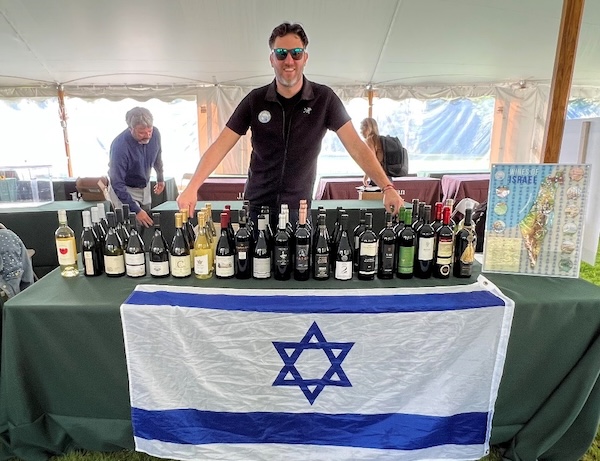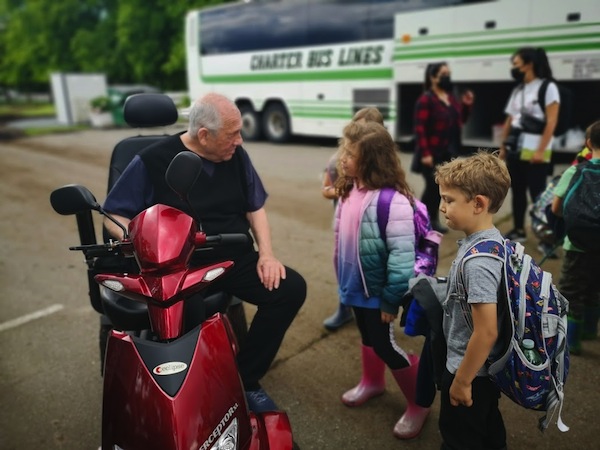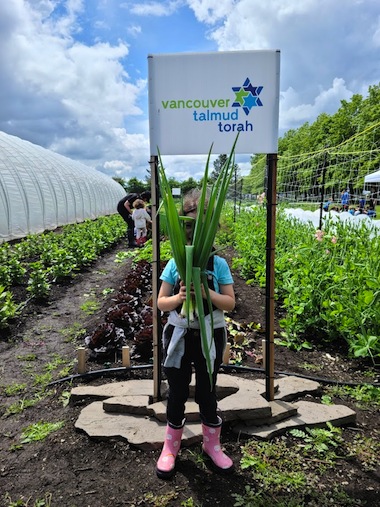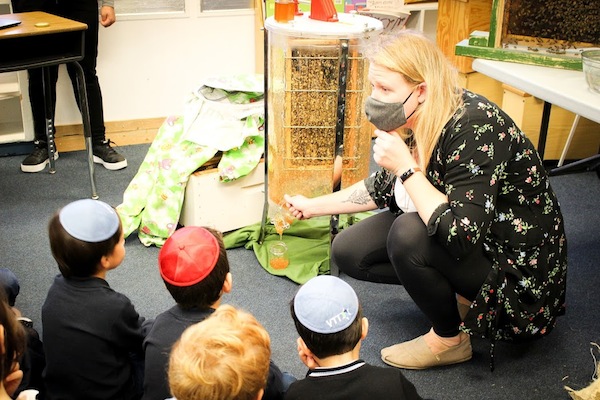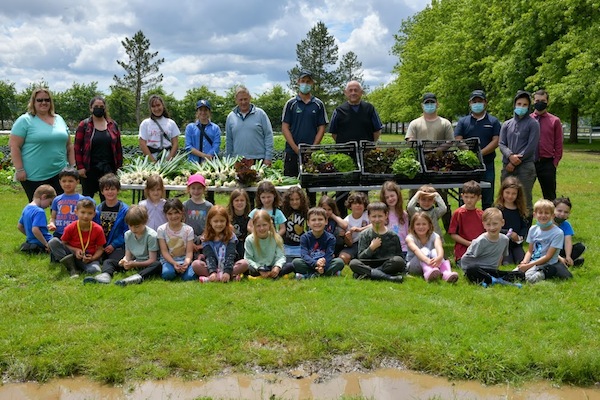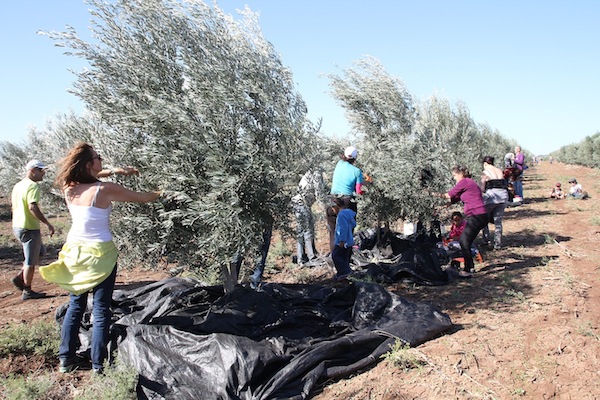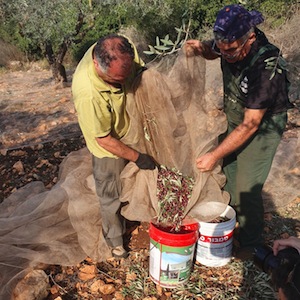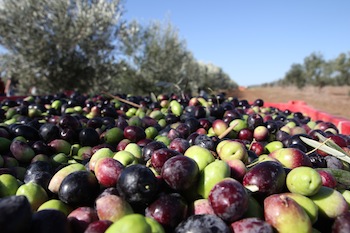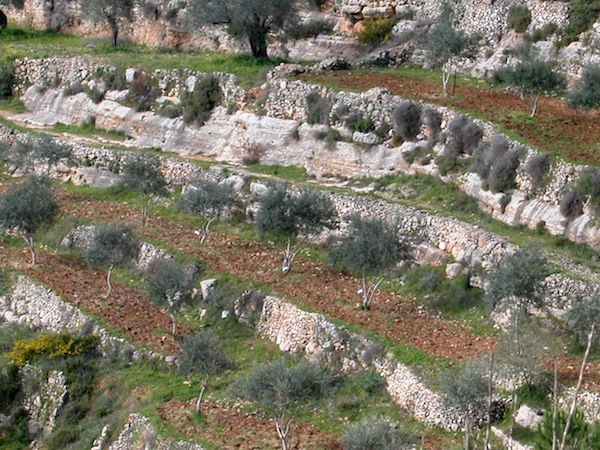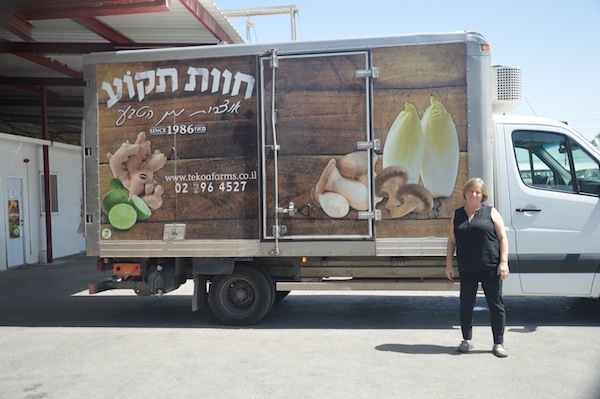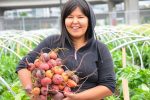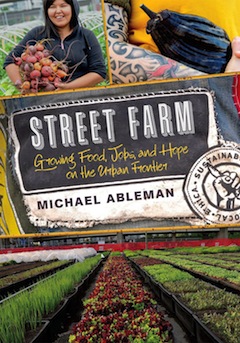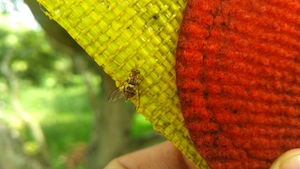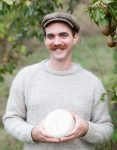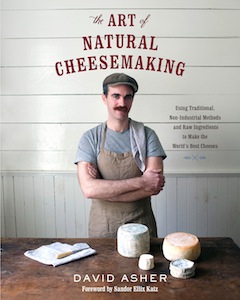Barbara Stegemann’s 7 Virtues perfumes help farmers in war- or weather-torn countries rebuild. (photo from Barbara Stegemann)
Barbara Stegemann (née Rabinovitch) was born and raised in an Anglophone neighbourhood in Montreal. While her Catholic mother disallowed any practise of Judaism, Stegemann recalled having begged her zaida to take her to synagogue to meet the rabbi.
“My soul felt very Jewish,” Stegemann told the Independent. “As Ben Stiller says, ‘When I look in the mirror, I see a Jew.’ That’s how I feel. My 23andME report came back and said I am 47.7% Ashkenazi Jew – so, science even accepts it.
“Interestingly, this genetic DNA test does not tell you if you’re Christian, Catholic or Muslim, but your DNA tells you that you are Jewish. For me, that is how powerful the connection is to being Jewish. It’s undeniably in our DNA.”
After earning a degree in journalism in 2006, Stegemann moved to British Columbia and settled in Port Moody, where she started a boutique PR firm, providing community economic development and strategy to clients from the City of Coquitlam to Mitacs, which designs and delivers research and training programs.
Then, something happened that shook Stegemann to the core. Her best friend from university and mentor, Capt. Trevor Greene, took off his helmet in a village in Afghanistan during a discussion about the need for clean drinking water and healthcare for the residents. A man attacked Greene, taking an axe to his head.
“We didn’t think he would make it through the night,” said Stegemann. “I prayed harder that night than I have ever prayed in my life. He made it through the night and, together with his fiancée, Debbie, and family, we all went on a healing journey. Since then, he married Debbie and they now have two children, Grace and Noah.
“I was blessed that I had my own company, so I could visit him in the Vancouver General three times a week. I lived in Port Moody, so it was not far. And, in the hospital, I promised him I would take on his mission of peace while he healed. Then, I realized, as a female in this patriarchy, I didn’t have a way to touch peace.”
Stegemann knew that, if women could find a way to harness their power – their buying and voting power – they had a chance to end war and corruption, two roots of poverty and suffering. With this in mind, she wrote the book The 7 Virtues of a Philosopher Queen: A Woman’s Guide to Living & Leading in an Illogical World, which was published on International Women’s Day (March 8) in 2008. A bestseller, it will see its seventh edition this year.
“I took all of the stoic wisdom of Socrates and Aurelius, the great leaders who guided [Winston] Churchill and the leaders who had to guide us out of hell,” said Stegemann. “I realized that our mothers didn’t talk to us about Adam Smith, capitalism, Plato and the polis … and that, if we, as women, were to take our rightful places changing policy and leading to an end of the cycles of war and poverty … we needed to have that same wisdom men have been given for 2,400 years.
“I used to walk around as a child with my Bible story records and play them for anyone who’d listen. My favourite story was The Wisdom of Solomon. I became entranced by the virtues and how they could change your life through their daily practice – wonder instead of judgment (which gives you all the resources you need on this earth), balance, truth, courage, justice, wisdom and beauty.”
One day, while Stegemann was studying about Afghanistan, she read about Abdullah Arsala in Afghanistan and about how Arsala was growing legal rose and orange blossom crops to liberate the farmers from growing illegal poppy crops.
She learned that the same people who had attacked her friend, Greene, were knocking over Arsala’s distillery, which made his flowers into essential oils for use in perfumes.
“I decided, that is it! I am going,” said Stegemann. “I flew to Ottawa and met with CIDA (Canadian International Development Agency) and told them to help me find Abdullah. I bought what little orange blossom oil he had on my Visa and launched The 7 Virtues [perfumes] in 2010, on International Women’s Day.
“Two weeks later, we were on the front page of the Globe and Mail. And, eight weeks later, I was on Dragons’ Den, pitching to venture capitalists. By then, I’d moved back home to my province of Nova Scotia and became the first woman from Atlantic Canada to land a venture capital deal on the popular CBC show.”
Stegemann helps farmers transition into growing legal crops, and make twice as much profit as they did growing poppies. According to Stegemann, when a farmer in Afghanistan grows legal crops for her perfumes, “His daughters are safe from being taken by the Taliban opium traders if the poppy crop fails. There is less heroin that ends up on the streets, destroying lives. And, when a farmer grows legal crops, he is honouring his faith. It goes against Islamic law to grow the illegal poppy crop.”
By helping the farmers, Stegemann believes she is helping bring peace. “It may not be my faith, but the truest way to peace is to honour one another and our beliefs,” said Stegemann. “The Taliban are completely going against their faith, forcing their neighbours to grow the illegal poppy crop. So, we must help one another.
“Our legal essential oil purchases in Afghanistan began this peace journey by liberating farmers from the illegal poppy trade and all of the abuses they and their families endure at the hands of the Taliban.
“Then, countries rebuilding after war or strife began coming to us, asking us to purchase from their distilleries to further build peace in nations rebuilding. The next country was Haiti. We began sourcing their vetiver oil.”
Stegemann travels often to Haiti to volunteer. On a trip after Hurricane Matthew hit, she was devastated to learn of a boatload of aid being turned away from the south, where not a mango stick stood and people had no shelter, as a result of the hurricane. The local official had asked for a bribe so large that the aid workers on the ship could not pay it.
“Haiti is the 10th most corrupt country in the world,” said Stegemann. “We have to engage our world leaders to end the culture of corruption in Haiti, in Afghanistan, and other nations that can’t take care of their people because their leaders are corrupt and don’t pay their police fair wages.
“There are many steps that have to be taken, but sourcing from a nation, spending time there and getting to know the issues, allows us to not only purchase fair trade products that give people dignity and jobs … but I can then write articles and be a voice as a trained journalist and activist to push our government to expect more from these countries.”
Stegemann believes social enterprise is a key way to build peace. She also believes that these cycles of war and poverty will remain if we expect our military and government to do the heavy lifting. According to Stegemann, we need a cavalry of businesses to come and buy saffron, pomegranates, essential oils or any other ethically sourced product, and this will help build peace.
It wasn’t until Stegemann moderated a panel discussion on the Middle East at a German Marshall Fund of the United States-hosted forum in Halifax that she realized the potential. On the panel were then-deputy minister of defence for Israel Matan Vilna’i and the minister of housing for the Palestinian Authority Dr. Mohammad Shtayyeh – and everyone got along.
“I feel strongly that destruction takes no imagination, no creativity, no intelligence, and it is actually boring,” said Stegemann. “I am not going to give my energy to it. Now, rebuilding, that is exciting! My real job is to make building more exciting than destruction.
“I do this through perfume. I decided to make a perfume of harmony from the Middle East. I sourced sweetie grapefruit from the Sharon region of Israel, with the help of ambassador [Miriam] Ziv. And we tried to get oils from the Palestinian region but could not.
“When I learned of Israeli Ronny Edry’s ‘We Love you Iran’ campaign, I decided to put Israel and Iran together with lime and basil essential oils from the Shiraz region of Iran. In our classic collection at the Hudson’s Bay stores, it is called Middle East Peace. It’s our bestselling fragrance and sells out quite often.”
In their new contemporary collection, launching at Sephora this month, they have a fragrance with the same oils, named after the oils – Grapefruit Lime – and the story is on the packaging, as is information about the oils’ healing properties.
On Stegemann’s most recent volunteering trip to Haiti (after Hurricane Matthew), she learned of the Sephora Accelerate program for female founders in the beauty business. As fewer than four percent of beauty company chief executive officers are women, Sephora decided to mentor, empower and create a network for these women.
“I felt so alone before,” said Stegemann. “I never had other female social entrepreneurs to share knowledge and suppliers with, and to bounce ideas off of. I wanted the program so badly that, when I first met with my Sephora buyers, I asked about this program. They immediately connected me with the women in San Francisco who run the program. They wanted the trailer to our doc film, Perfume War (perfumewar.com), and said they loved it. So, I got in. I was mentored by the director of Sephora Canada, Will Chung. They gave me the confidence to stretch out of my comfort zone and hire a branding agency.”
Going with Sephora was a hard decision for Stegemann, as that meant she had to leave the small boutiques she had built. But she was determined to stick with her mission of helping as many farmers as she could, and going big was the only way to do that.
The 7 Virtues perfumes can be found at Sephora online (sephora.com) and in stores, including the Robson, Park Royal and Richmond stores in Metro Vancouver.
Rebeca Kuropatwa is a Winnipeg freelance writer.

